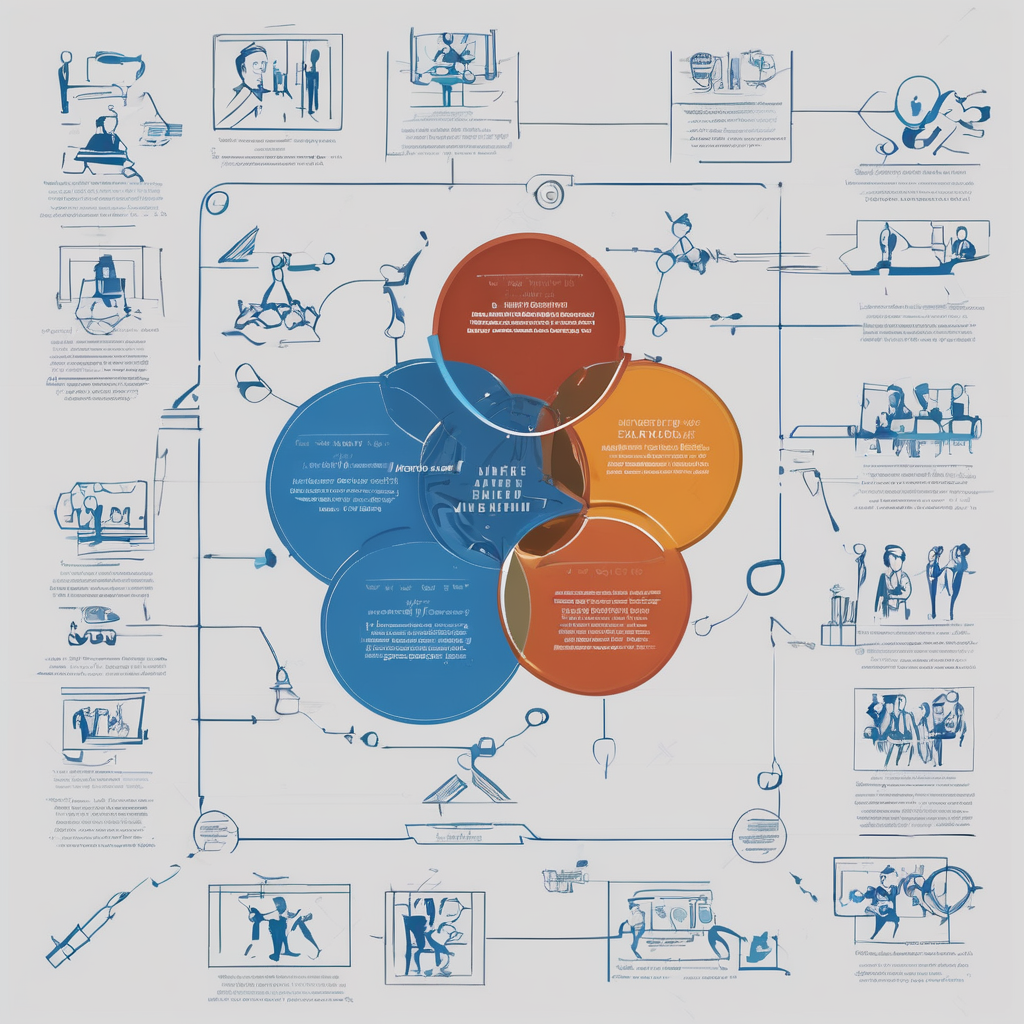Virtual reality is revolutionizing the way we travel, offering UK travel agencies a remarkable opportunity to enhance customer experiences. Imagine exploring vibrant destinations and iconic landmarks before booking your trip. This innovative tool not only captivates potential travellers but also empowers them to make informed choices. By integrating immersive previews, agencies can foster excitement, streamline decision-making, and ultimately elevate their service offerings. Explore how virtual reality is reshaping the future of travel and discover the benefits it brings to both agencies and their clients.
Understanding Virtual Reality in Travel
Virtual Reality (VR) is transforming the travel industry by offering immersive experiences that were once unimaginable. Virtual Reality in Travel involves creating simulated environments that allow users to explore destinations without leaving their homes. This travel technology provides a three-dimensional experience, giving potential travellers a taste of what awaits them.
Also to read : Creative Approaches for UK Hotels to Boost Guest Loyalty and Satisfaction
Historically, VR’s introduction to the travel sector was met with skepticism due to high costs and technical limitations. However, as technology advanced, so did its applications. Initially, VR was used primarily for promotional purposes, allowing travel agencies to showcase destinations in a captivating way. Now, it has evolved into a tool for planning and decision-making.
Today, the adoption of VR by travel agencies is on the rise. Current trends indicate a growing interest in using VR applications to enhance customer engagement and satisfaction. Travel agencies are increasingly integrating VR into their marketing strategies to provide virtual tours and experiences. This not only attracts potential customers but also helps them make informed decisions about their travel plans.
In parallel : Unlock talent with effective recruitment outsourcing solutions
By leveraging VR applications, travel agencies can offer personalised experiences, making travel planning more interactive and accessible. As this technology continues to develop, its role in the travel industry is expected to expand, offering even more innovative solutions.
Benefits of Virtual Reality for Travel Agencies
Virtual Reality (VR) offers numerous benefits for travel agencies aiming to enhance their services. One of the primary advantages is improved customer engagement. By providing immersive experiences, VR allows potential travellers to explore destinations in a way that traditional methods cannot. This interactive approach captivates customers, encouraging them to spend more time exploring travel options.
Another significant benefit is the increase in travel satisfaction. When customers can virtually visit a destination before booking, they are more likely to make informed decisions, reducing the chances of disappointment. This not only boosts customer satisfaction but also fosters loyalty, as travellers are more likely to return to an agency that meets their expectations.
Moreover, integrating VR into travel services provides a competitive edge. Agencies that adopt VR technology can differentiate themselves by offering unique, personalised experiences. This innovation attracts tech-savvy customers who seek modern and efficient ways to plan their trips.
In summary, the benefits of VR for travel agencies are substantial. Enhanced customer engagement, increased travel satisfaction, and a competitive advantage are just a few ways VR is revolutionising the travel industry, making it an essential tool for agencies looking to thrive in a digital age.
Case Studies of VR Implementation in UK Travel Agencies
In the UK, several travel agencies have successfully integrated VR into their operations, setting a benchmark for innovation. One notable example is Thomas Cook’s “Try Before You Fly” initiative. This program allowed customers to experience destinations through VR headsets, significantly boosting bookings for showcased locations. The immersive nature of these VR examples enhanced customer engagement, demonstrating the potential of virtual reality in travel planning.
Feedback from customers who participated in these VR initiatives has been overwhelmingly positive. Many appreciated the opportunity to explore destinations virtually, which helped them make more informed travel decisions. This approach not only increased customer satisfaction but also reduced the likelihood of post-purchase regret. Such outcomes highlight the effectiveness of VR in enhancing the travel experience.
Lessons learned from these case studies emphasize the importance of user-friendly technology and realistic simulations. Agencies found that ensuring high-quality VR content is crucial for maintaining customer interest. Additionally, integrating VR into existing marketing strategies required careful planning and staff training. These insights are invaluable for other travel agencies considering VR solutions, showcasing the transformative impact of virtual reality on the travel industry.
Technological Requirements for VR Solutions
Implementing VR technology in travel agencies requires specific hardware and software solutions. To deliver immersive experiences, agencies must invest in essential hardware requirements such as VR headsets and powerful computers. These devices offer high-resolution displays and motion tracking, crucial for creating realistic virtual environments.
When selecting software solutions, agencies should consider platforms that support 3D modelling and interactive content. Popular options include Unity and Unreal Engine, which provide robust tools for developing customised VR experiences. These platforms enable agencies to create detailed simulations of travel destinations, enhancing customer engagement.
Integrating VR technology into existing travel agency systems demands careful planning. Agencies need to ensure compatibility between new VR software and their current infrastructure. This may involve upgrading network capabilities and storage solutions to handle the increased data load of VR applications.
Moreover, staff training is essential for the successful implementation of VR solutions. Employees must be equipped with the knowledge to operate VR hardware and software effectively, ensuring a seamless experience for customers. By addressing these technological requirements, travel agencies can fully leverage the potential of VR, offering unique and engaging experiences to their clientele.
Customer Testimonials and Experiences
Customer testimonials provide valuable insight into the effectiveness of VR experiences in the travel industry. By collecting and analysing these testimonials, travel agencies can gauge the impact of VR on customer satisfaction and decision-making. Many customers have shared how VR has enhanced their travel planning, allowing them to make more informed choices.
From a customer’s perspective, the ability to virtually explore destinations can significantly influence travel decisions. For instance, one traveller noted that experiencing a destination through VR helped them decide on a holiday spot they might not have considered otherwise. This highlights the power of immersive VR experiences in shaping travel preferences.
Memorable VR experiences often revolve around the realism and interactivity of the simulations. Customers frequently mention the thrill of virtually walking through iconic landmarks or experiencing cultural festivals from afar. Such experiences not only captivate users but also increase their confidence in booking trips.
Travel feedback from these testimonials underscores the importance of high-quality VR content. Customers appreciate detailed and lifelike simulations, which can make the difference between a simple preview and a truly engaging experience. By focusing on customer feedback, travel agencies can refine their VR offerings to better meet traveller expectations.
Comparing VR with Traditional Travel Marketing Strategies
In the evolving landscape of travel marketing, understanding the differences between VR and traditional marketing methods is crucial. Traditional marketing strategies often rely on static images, brochures, and advertisements to capture the interest of potential travellers. These methods, while effective to some extent, lack the immersive quality that VR offers.
VR vs Traditional marketing highlights a significant shift in how agencies engage with their audience. Virtual Reality provides an interactive experience, allowing users to explore destinations in a three-dimensional space. This engagement is far more captivating than a simple image or text description, as it enables potential travellers to virtually “visit” a location before making a decision.
When assessing the cost-benefit analysis of VR versus traditional strategies, VR can initially seem more expensive due to the need for specialised hardware and software. However, the long-term benefits, such as increased customer engagement and higher conversion rates, often outweigh these initial costs. VR allows for personalised experiences, which can lead to greater customer satisfaction and loyalty.
In conclusion, while traditional marketing strategies have their place, the effectiveness of VR in reaching and engaging potential travellers is undeniable, offering a modern solution to an age-old challenge.
Guidance for Implementing VR Solutions
Integrating VR solutions into a travel agency requires a strategic approach to ensure success. A well-planned VR strategy begins with identifying the specific areas of the travel experience that can benefit from virtual reality. This involves assessing customer needs and determining which destinations or services can be enhanced through VR.
Once the focus areas are identified, the next step is selecting appropriate VR hardware and software. Agencies should invest in high-quality VR headsets and platforms like Unity or Unreal Engine to create immersive and interactive content. Ensuring compatibility with existing systems is crucial for seamless integration.
Training staff on VR technology is essential for effective implementation. Employees need to understand how to operate VR equipment and guide customers through virtual experiences. Regular workshops and hands-on training sessions can help staff become proficient in using VR tools and engaging with customers.
Creating compelling VR content is vital for capturing customer interest. Best practices include using high-resolution images and videos, realistic 3D models, and interactive elements to enhance the virtual experience. By following these guidelines, travel agencies can successfully implement VR solutions, offering innovative and engaging experiences to their clients.
Future Trends of VR in the Travel Industry
The future of VR in the travel sector promises exciting possibilities and innovations. As technology continues to advance, VR innovations are expected to become more sophisticated, offering even more immersive experiences. Predictions suggest that VR will soon incorporate elements of augmented reality (AR), providing a hybrid experience that blends virtual and real-world environments seamlessly.
Emerging travel industry trends indicate a shift towards more personalised VR experiences. As data analytics and AI become more integrated into VR platforms, travellers can expect customised virtual tours that cater to their specific interests and preferences. This evolution will allow travel agencies to offer tailored experiences, enhancing customer satisfaction and engagement.
To stay ahead, travel agencies must embrace these emerging VR trends. Investing in the latest VR technologies and training staff to use these tools effectively will be crucial. Agencies should also explore partnerships with tech companies to access cutting-edge VR solutions and stay competitive. By keeping abreast of technological advancements and continuously innovating, travel agencies can ensure they remain at the forefront of the industry, providing unique and captivating experiences for their clientele.






